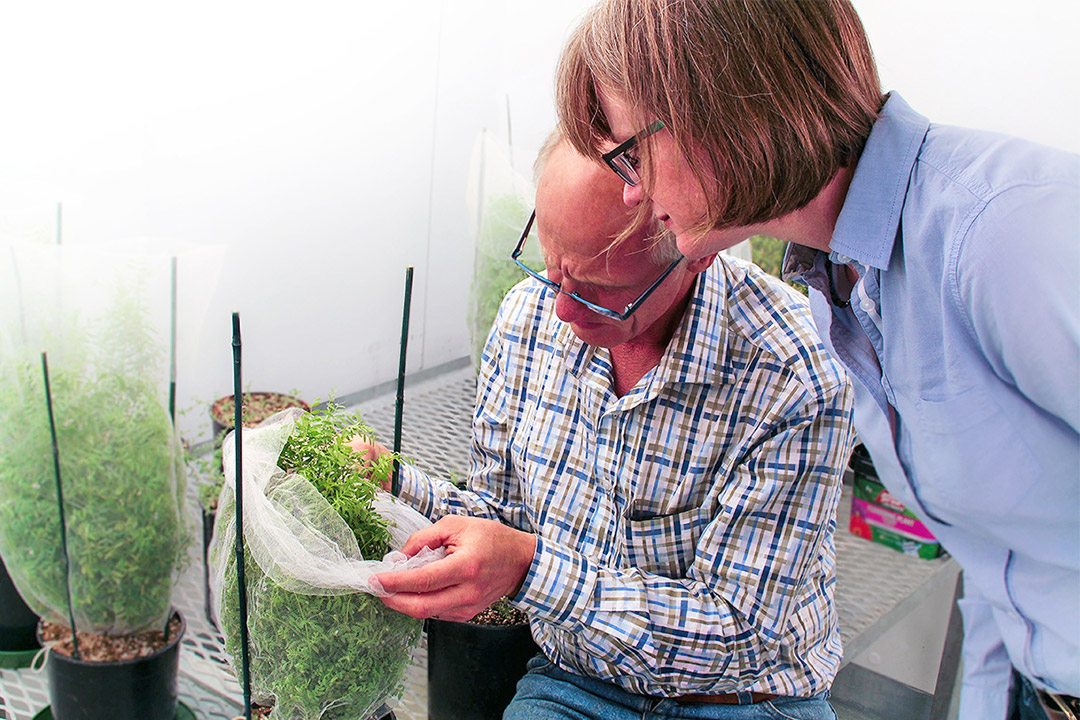
U of S-NRGene crop research partnership maps two lentil genomes
In cutting-edge research aimed at breeding better lentils, a partnership between U of S crop scientists and world-leading genomic big data company NRGene of Israel has successfully sequenced two wild lentil genomes—the largest legume genomes ever assembled.
By University CommunicationsLargely due to advances in plant breeding at the U of S, Canada is the world’s leading exporter of lentils, delivering millions of tons of lentils to India, Pakistan and Bangladesh where this vegetable-based protein serves as a critical food source.
The research, part of the $7.9-million Genome Canada-funded “Application of Genomics to Innovation in the Lentil Economy (AGILE),” is led by U of S scientists Kirstin Bett and Bert Vandenberg. With the help of NRGene’s genomic assembly and analysis technology, the research is expected to empower future breeding efforts aimed at enhancing lentil yield and quality.
“NRGene’s technology has dramatically accelerated our research, which aims to shed light on lentil domestication and adaptation,” said Bett. “Through identifying beneficial traits from wild relatives and integrating them into the genome of the domesticated lentil, we can now develop lentil varieties with much improved vigor, resilience and productivity. Maintaining sustainable lentil production will play an important role in addressing the world’s need for an ecologically sound protein source that is also highly nutritious.”
Professor Bett’s group leads the international lentil genome sequencing initiative which has resulted in the release of a “reference genome” (a complete genome sequence) for a Canadian-cultivated lentil variety. Now with additional genomic information from the wild species, the researchers have a much broader view of genes and pathways that enable lentils to thrive in volatile climatic conditions.
She noted that to date, breeders have only been able to access a small fraction of the total germplasm diversity in existence, which hinders Canadian producers’ ability to meet growing global demand. With its focus on wild lentil genomes, the project is aimed at introducing genetic diversity with great precision and speeding up the breeding cycle to provide breeders with faster access to better lentil varieties.
The U of S Crop Development Centre (CDC), which to date has developed 400 commercial crop varieties, is working with NRGene to sequence several of the world’s major crops. A huge step forward in crop genomic research was the release this year of the wild Emmer wheat genome sequence generated using NRGene technology and involving U of S scientists. Emmer wheat is the wild form of all the domesticated wheat in the world. The work was published in Science in July of 2017.
Knowledge gained from this innovative research is expected to have an immediate effect on the world food supply since the scientists at the CDC are directly applying genomics to breeding of superior varieties grown on millions of acres. NRGene data provides the underlying understanding that can lead to breeding seeds for higher yields with fewer resources.
“Our partners at the University of Saskatchewan are aggressively pursuing the quest to identify essential traits that strengthen the genetics of the crops that feed the world,” said NRGene CEO Gil Ronen. “We look forward to our continued partnership to disrupt the cycle of world hunger by offering hardier, more nutritious plants.”

